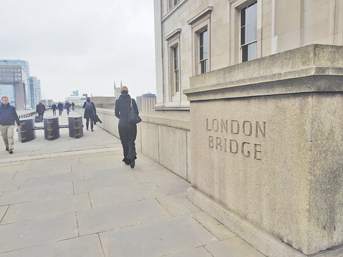Ahead of the closing of the Home Office consultation into a proposed Protect Duty on public places to have a legal responsibility for the safety of people from terrorism, Mark Rowe asks what difference will the Duty make?
Some in the security industry hail the Duty assuming that it will force businesses to spend more on security. As if a concert venue was not spending before 2017. The trouble with ‘Protect’ is that once it becomes a legal Duty it ceases to be done according to risk. The Manchester Arena Inquiry first report suggests that the Duty once applied will lead to an undignified scramble to avoid responsibility for the bits of ground outside buildings, where terrorists go, to do ‘hostile reconnaissance’ or in the minutes the prepare before they strike. In these senses, the Duty will actually lead to less security than the risk may demand. You only have to walk through a high street to see the empty premises, each with fire exits and entrances now without staff or CCTV coverage. Who’s going to watch all these new ‘grey spaces’? Does the Home Office truly expect cinemas, hospitals, rail companies, all facing tight budgets, to do anything extra to counter terrorism, because of a legal duty?
Legal gain
The supporters of such a Duty argue that businesses will do what they ought to do, because it will be the law; as if Security will gain budget and respect as a result. In practice, just as the Home Office is dumping a responsibility for countering terrorism that rightly sits with it, onto business, so each business will dump the task onto the security manager – if it still employs one. Some shopping centres for example took a scythe to their security departments last year.
Voices
Here we can explain why security industry bodies are so uncritical about the Protect Duty. With exceptions, the Security Institute board has always been made up of consultants rather than end users. That is no criticism either or the Institute or consultants as a group. The Institute like so many other bodies relies on volunteers to make things happen; and they are precious. But; a consultant is not the one who will have to make the Duty work at a stadium, or a mall or City of London mixed tenanted office building; the security or building manager will. The end user may even be among those who physically has to face a terrorist – at Fishmongers’ Hall (to the right of London Bridge, pictured), using whatever improvised weapons are to hand. The end users will under the Protect Duty be the ones in court, having to explain all that they did or did not do. A further point about industry bodies; you can often hear it said that the industry should ‘speak with one voice’; that it’s a bad thing that UK private security does not have a powerful group or association to put its case to politicians, police and the like; as dominant as the BSIA was around the year 2000. The Protect Duty shows that a single voice is not necessarily good, because of the two (at least) sides here: those that could do well out of the Duty (consultants) and those not (end users).
Two ways
The Duty can develop in one of two ways. It can become a meaningless waste of time, mere paperwork; in that case, why do it? In that case it serves the bureaucrat in the Home Office; it’s yet more signage on a pole or wall that makes no difference, just as in the tiniest Scottish harbour you can come across signs about port security plans. Or, the Duty can make a difference; only, by being oppressive. That would suit the ‘securocrats’ of the Home Office, and Figen Murray, who consistently, as in a BBC News documentary this month on the occasion of the first Manchester Arena Inquiry report, said that security ‘needs to be in the forefront of people’s minds’. Any drinker in any pub will disagree. Quite the opposite; security should be as unobtrusive and inexpensive as possible, so as to allow whatever’s going on to happen with a minimum of hindrance, physical or financial. Security people do not want to live in a fortified, ID-checking ‘security state’ any more than anyone else.
Protect Duty view 3 of 3: click here.










